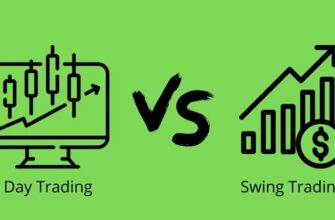The issues of auctions in bankruptcy mean the risks associated with the acquisition of property, challenging auctions, preemptive rights, and auction peculiarities in the quarantine period. Recommendations and hacks for bidders.
The number of bankruptcies of companies and individuals grows every year. The volume of property sold at auctions due to insolvency proceedings is being increased. Over half of bankruptcies are usually initiated by creditors.
Sometimes this happens when the terms of the transaction for the acquisition of real estate are practically agreed with the counterparty. In such a situation, the only opportunity to acquire an asset is to participate in auctions in a bankruptcy case.
The Participation Procedure in the Auction in Bankruptcy
The property sale in bankruptcy is regulated in detail. The procedure itself may seem complicated. In practice, the arising difficulties are associated not with technical aspects, but mostly with obtaining information about the asset being sold and its current state. Under the current legislation, the bankruptcy commissioner carries out the sale of the debtor’s property after its inventory and assessment.

For example, credit counseling is procedurally practiced in the United States, which usually refers to an “individual or group briefing” with a non-profit agency. Such an agency offers budget and credit advice. At the same time, debtors must be present at the briefing before applying any article of the Bankruptcy Code.
There are exceptions to the requirements for certain categories of debtors in urgent circumstances. Also, exceptions include cases where a bankruptcy trustee or administrator in the United States determines that there are not enough approved credit advisory agencies to provide necessary advisory services.
The US Trustee’s Office offers a list of approved credit counseling providers. For example, such well-known Approved Credit Counseling Agencies in various states are BK Class, Inc., Debtor cc, Inc., Credit Counselors, Inc, Abacus Credit Counseling, and several others.
The property is sold through licensed auctions organized by specialized companies such as Pugh and Co., Atlantic Auctions Inc., America’s Auction House Heritage Auctions, and others. Auctions are also held online on the auction site Bid4Assets and the largest debtor property auction — platform Ten-X.
On these online sites, Canadian residents also participate in the auctions. Online auctions held by a group of companies-operators E-Commerce and Online Auctions are actively going on in Canada. One offline auction representative in Canada is the Elite Auctions company.
The auction is conducted in several stages as an open auction if the property is not limited in circulation and does not require the fulfillment of any special conditions for the possession and its use. The first and repeated trades are held in the classic “bullish” format, with the difference that repeated trades start with a price reduced by 10% relative to the first trades.
The third stage of the auction is a public offer. Here the property price is gradually reduced after a certain period and until the cut-off price is reached. To participate in the auction, you must have a qualified electronic digital signature, be registered on the relevant electronic trading platform site, and make a deposit.
Unfortunately, bankrupt property trading is held on numerous electronic trading platforms because the common electronic trading platform with information about all auctions does not exist. So it is difficult to track information on the sale of assets of bankrupts. This significantly limits the range of potential bidders. But it is easy to get information in mass media on a property sale of a particular company.
Risks Associated with the Acquisition of Property at Auction
There exists an opinion among lawyers and realtors that auctions are “incorruptible”. It is common to hear advice about buying real estate at an auction considered as one of the safest ways to buy. To a certain extent, this is true. The asset is purchased at an auction after assessing the competitive environment, proper execution of all necessary documents at market value. This is the procedure.
As a result, the closing sale and purchase agreement with the winner or the sole bidder to a large extent protects the buyer from further challenging such transaction. You should remember that the auction can also be declared invalid if a certain procedure failed to be considered. It often happens that persons applying for a property in bankruptcy do not consider the risks of exercising by third persons the preemptive right as to such property.
The Bankruptcy Auction Can be Challenged
The property acquisition can only be challenged at the request of the interested party by declaring the auction itself invalid due to significant violations of the rules to hold auctions.
Since auctions are a way of a property sale, their invalidation entails the invalidity of the reached agreement. In most cases, the cancellation of a bid is caused by a violation of procedures, or by unfair actions of their participants, an organizer, or a trading platform.
The most frequent procedural violations are incorrect published information about the auction, distorted or incomplete information about the property data, violation of the procedure for accepting applications for participation in the auction, as well as summing up their results, and other actions that reduce interest in the auction.
Such actions limit the number of their potential or actual participants and violate the rights of the debtor’s bankrupt creditors to the complete satisfaction of their claims in the bankruptcy case. The contestation risk persists for 1 year from the auction date.

Auction Trading is a High-Risk Area in the Quarantine Period
The restrictive measures in 2020 are aimed at preventing the spread of coronavirus infection. They caused significant difficulties in the administration of justice, bankruptcy proceedings, and bidding. An introduced self-isolation regime restricts activities and of a significant number of companies.
This current situation not only adversely affects the trading efficiency but also leads to a violation of the rights of bidders (the debtor and his creditors) due to the restriction of interested parties’ access to property inspection and participation in auctions. Difficulties also arise in meeting the deadlines for publishing announcements of tenders.
The notice must be made at least 25 business days before the auction. In case the restrictive circumstances are not considered, changes in the auction status may lead to its postponing or to challenge procedures.
The Preemptive Rights and the Acquisition Property
Other risks when buying a property at auction are hidden in bankruptcy proceedings. There exists a possibility of exercising the preemptive right to purchase an asset by other persons. The bankruptcy law directly establishes the right of preferential property acquisition of an agricultural organization and a farm economy.
Such a right is granted to persons engaged in the production and processing of agricultural products and owning land plots directly adjacent to the debtor’s land property. And in the absence of a neighborhood, this right is granted to agricultural producers whose real estate is located on the same territory where the debtor runs his business.
The current legislation provides for a list of certain persons to obtain the right of preferential property acquisition. This concerns the right of the participants in shared ownership to acquire a share alienated by one of the co-owners.
This provision also applies to joint property of spouses, the right of the building owner to acquire ownership of the land plot on which the building is located, as well as the right of a shareholder or participant to acquire shares or stakes from other company participants (shareholders).

The legal practice on the exercise of these preemptive rights in bankruptcy procedures is a rather heterogeneous resolution of disputes arising from numerous factors affecting the resolution of disputes. It is necessary to pay attention to the risks when deciding whether to buy property at an auction in bankruptcy.
Persons having a preemptive right can use it not only by participating in the auction but also by notifying the auction organizer about his intention after summing up the auction results.
Such persons even after the contract has been signed by a winner at the end of the auction may apply to the court to claim the transfer of their rights and obligations. The terms for filing a claim to transfer rights and obligations of the transaction are considered starting from the moment a person got to know about violation of his preemptive right.
Recommendations
- If you are interested in buying a property at an auction as part of the bankruptcy procedure, you need to focus on checking the compliance of the auction conditions with current legislation. That is, to check the timeliness and completeness of the publication of information on the rules for the auction and on the part of the property already sold.
- It should be borne in mind that for auctions held during the quarantine period, a significant number of disputes may arise regarding the timing of the publication of information about the auction, as well as providing participants with a real opportunity to get acquainted with the real estate and the possibility of their participation in the auction.
- We recommend you to check for sure the asset for the availability of potential third-party claims, pay special attention to the sufficiency of information in the regulations for the sale of a property.
- It is advisable to request from the arbitration manager the data on the persons entitled to preferential asset purchase and their advance notification to avoid risks of losing the asset. There in the legal norms also exists the right of preferential acquisition of assets of strategic organizations and natural monopoly entities.








